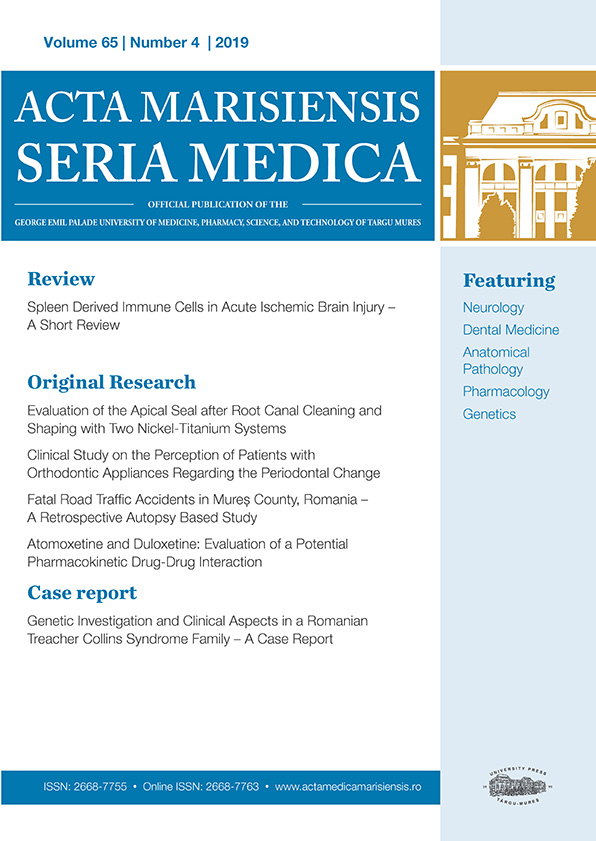Glial fibrillary acidic protein as a serum neuromarker of brain injury in pediatric patients with congenital heart defects undergoing cardiac surgery
DOI:
https://doi.org/10.2478/amma-2023-0037Keywords:
congenital heart defect, glial fibrillary acidic protein, neurodevelopmentAbstract
Objective: The aim of this study was to assess glial fibrillary acidic protein (GFAP) as a marker of short-term neurodevelopmental delay in pediatric patients with congenital defects (CHD) after cardiovascular surgical intervention.
Methods: Included patients were screened by Denver Developmental Screening Test II scale a few days before and then at 4 to 6 months after the surgical intervention. Blood samples were collected preoperatory and at 24 hours after surgery; GFAP levels were assessed by enzyme-linked immunosorbent assay using commercial kit form BioVendor.
Results: Forty children were enrolled and dichotomized into two groups based on peripheric oxygen saturation: cyanotic (<95%) and non-cyanotic (>=95%) group. 63% form our population had an abnormal neurodevelopmental outcome. Significant differences between groups were found in language domain scores preoperatory (p=0.03) and in fine motor domain postoperatory (p=0.03). In the postoperatory period, GFAP had significantly higher values (p=0.0248) in the cyanotic CHD group. Association between GFAP and NIRS were analyzed and significant differences were found in both groups with a good predicting model in the non-cyanotic CHD group (aria under curve of 0.7 for receiver operative characteristic). Higher GFAP levels from the postoperatory period correlated with neurodevelopmental impairment (mean value of: 0.66 ± 0.02ng/ml in those with good neurodevelopmental score, 0.69 ± 0.02ng/ml in those with low neurodevelopmental score, p=0.01).
Conclusions: GFAP could be a reliable neuromarker in identifying early acute brain injury documented by NIRS monitorization during perioperatory period and it also could identify short term neurodevelopmental impairment documented by lower neurodevelopmental scores.
Downloads
Published
How to Cite
Issue
Section
License
Acta Marisiensis Seria Medica provides immediate open access to its content under the Creative Commons BY 4.0 license.









